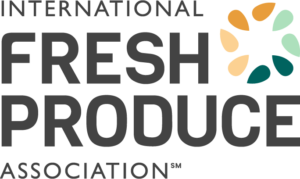Oct 31, 2022IFPA’s State of the Industry: This not for the ‘faint of heart’
Despite the remnants of the global pandemic and emergent challenges like inflation, labor, and extreme climate events, International Fresh Produce Association CEO Cathy Burns urged Global Produce & Floral Show guests to capitalize on the moment and momentum around fresh produce and floral as products that give rise to life to consumers the world over.
“What we do is not for the faint at heart and it’s not only for our prosperity,” Burns said. “What we do is produce products that impact the health and well-being of every human on the planet.


“I’ve never felt more certain that time and purpose are linked to creating and leading what happens next for our industry.”
This was the first State of the Industry session for IFPA, the merged Produce Marketing Association and United Fresh Produce Association. Burns delivered key takeaways:
Here comes the Metaverse
This emerging digital world is where consumers will go to socialize, play games, and most importantly – buy. In 8 years, it is expected to generate $5 trillion in value. Platforms like TikTok and Instagram will remain relevant (with social media commerce expected to grow to $1.2 trillion in 3 years), but there’s a looming change from novelty to knowledge, a move from entertaining diversions to engaging discussions.
IFPA’s role: The association’s global insights and analytics practice keeps a pulse on emerging trends like the Metaverse and more to guide members and global community.
Food as medicine
From medically tailored meals to precision nutrition and produce prescriptions, fresh fruits and vegetables are poised to lead meaningful changes in global consumer health. “It’s becoming ever clearer that the solution to many of our health challenges are on the farm, not in the pharm,” Burns said.
IFPA’s role: Fruit and vegetable moonshot found six of eight proposals in new national nutrition strategy. Now the work begins in continued advocacy for strong policy to bring the strategy to life.
Innovation in sustainability and technology
Opportunities abound through innovation in sustainability and technology to tackle big issues like climate to energy to production to food loss/waste. One Italian retailer is using electronic tags that automatically lower a food’s price as the sell-by date gets closer, while in the U.K., retailers are ditching sell-by dates altogether.
IFPA’s role: Burns announced IFPA is launching a Fresh Produce Research Center with sustainability as its first initiative to connect academia with industry and lean into IFPA’s advocacy strengths to ensure agencies prioritize investment in fresh produce research on behalf of the industry.
Inflation and consumer concerns
Food prices have continued to rise, and consumers are stretching every dollar, rand, real, peso, pound, yen and euro. According to BMO Capital Markets, inflation-adjusted GDP is expected to grow just 1.6% in 2022 and will likely contract somewhat in the first half of 2023 due to the high interest rate environment.
IFPA’s role: Soon-to-launch syndicated IFPA research on the economy, plus the popular Produce MarketWatch and Floral MarketWatch reports provide analysis and insight.
Help wanted. Everywhere.
Talent retention remains a challenge as quiet quitting has supplanted The Great Resignation. Burns suggested that companies consider applying the disciple and rigor they use when measuring consumer engagement to their employees to create a “passion index.”
IFPA’s role: IFPA Diversity, Equity and Inclusion initiatives, compensation study and Online Learning Academy provide opportunities for employers to ensure they are competitive when it comes to pay, as well as providing a platform for professional development.
Burns closed the session with a call to action around changing the trajectory of human health worldwide.
“We have all seen the statistic: only 1 in 10 Americans consumes the recommended number of fruits and vegetables a day. Meanwhile, we are spending a trillion dollars of our national debt each year treating diet-driven diseases – diseases that can be addressed by changing what’s at the end of your fork,” she said. “More American adults are walking around metabolically sick than healthy, and it’s even worse among teenagers.”
IFPA global research found that, across the markets of Brazil, China, Germany, the U.K. and the U.S., more than 75% of consumers overwhelmingly agree that fruits and vegetables are important, and a similar percentage feel they are eating enough. Yet, when asked how many fruits and vegetables they eat each day, the amount – 3.4 servings – falls well below World Health Organization’s recommendation.
“This must change. We have an opportunity and an obligation,” Burns said. “As an organization, it is our duty to champion the data, insights and messages that create lasting change in consumption so that the world knows fresh produce truly is the secret to vitality and vibrancy. IFPA is not in this to simply change the game. We are in this to change the world. And together with you – our members – we will. Because our time is now, right now. We cannot miss this moment.”















